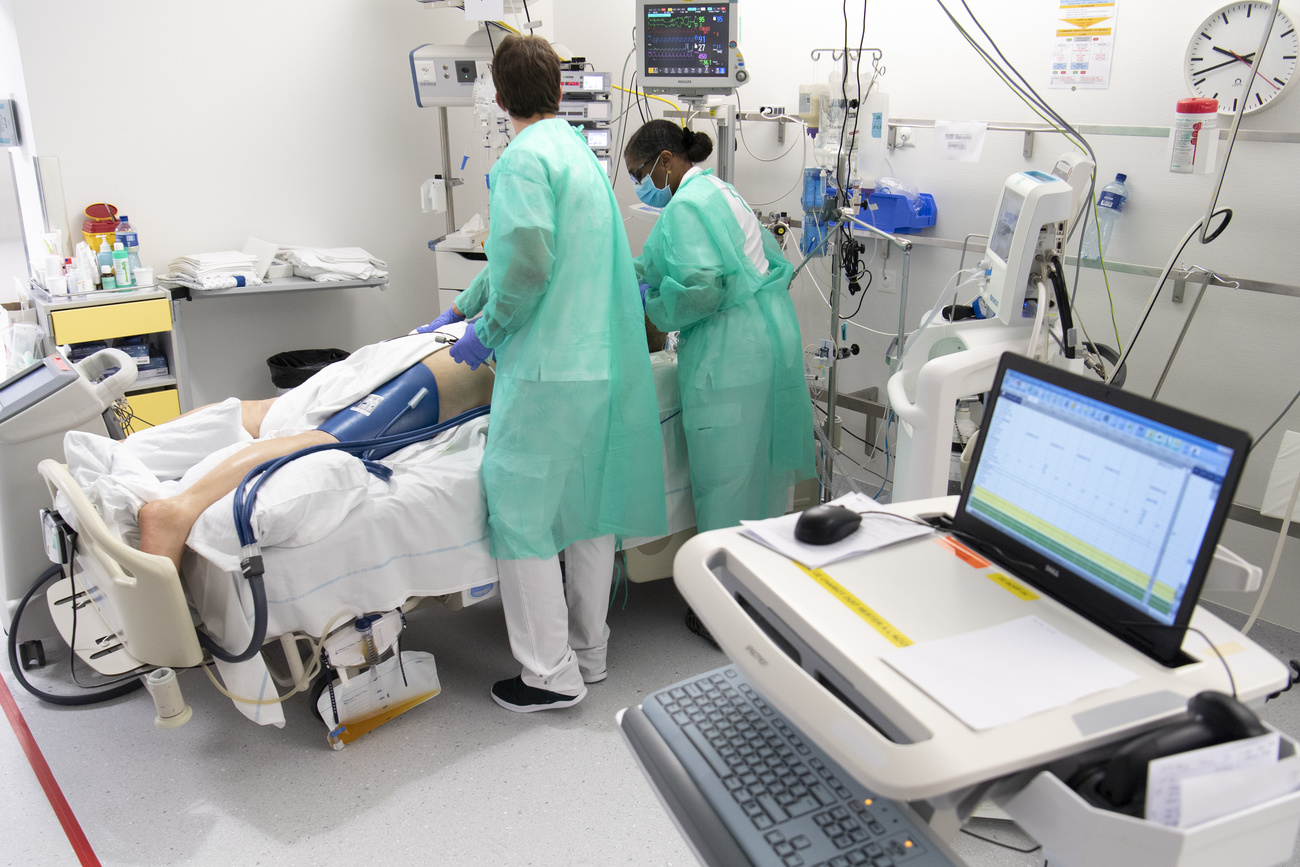
Swiss team uses artificial lung in new Covid-19 research

Scientists at the Federal Technology Institute Lausanne (EPFL) have developed a simplified model of a human lung that lets them investigate how Covid-19 causes blood clots.
COVID-19 sometimes causes blood clots, but doctors are still not sure why, an EPFL press releaseExternal link explains. Around 10% of hospitalized patients develop this complication, according to a recent studyExternal link. In the most severe cases, the blood clots can lead to a stroke.
“To get more insight into this phenomenon, EPFL scientists have developed a microfluidic chip that models the human lung and replicates part of its structure to study COVID-19 infections,” says EPFL. “The chip can hold lung epithelial cells, blood-vessel cells and immune-system cells, and lets scientists directly watch how SARS-CoV-2 attacks human cells and triggers the formation of blood clots.”
Two mechanisms are suspected to be at work, according to EPFL. One is an excess production of cytokines, causing an overreaction of the immune system which can damage blood vessels, cause blood clots to form, and are potentially fatal. The other possible mechanism is damage to the interior lining of blood vessels – or the endothelium – in the lungs.
So which mechanism is the likely culprit? “To find out, doctors need to be able to watch how the infection progresses in the lungs hour by hour,” says the press release. “That’s nearly impossible in living patients and not very feasible in lab cultures either, since cultures usually contain just one kind of cell and don’t provide a realistic enough representation of the entire lung system.”
“With our lung-on-a-chip system, we found that the virus may be causing blood clots by attacking the endothelium directly,” says Vivek Thacker, who is leading the research. “However, that doesn’t mean that cytokines don’t play a role too and make things worse.”
The team will next use their lung-on-a-chip with actual blood samples so that they can observe clot formation directly.

In compliance with the JTI standards
More: SWI swissinfo.ch certified by the Journalism Trust Initiative




























You can find an overview of ongoing debates with our journalists here . Please join us!
If you want to start a conversation about a topic raised in this article or want to report factual errors, email us at english@swissinfo.ch.